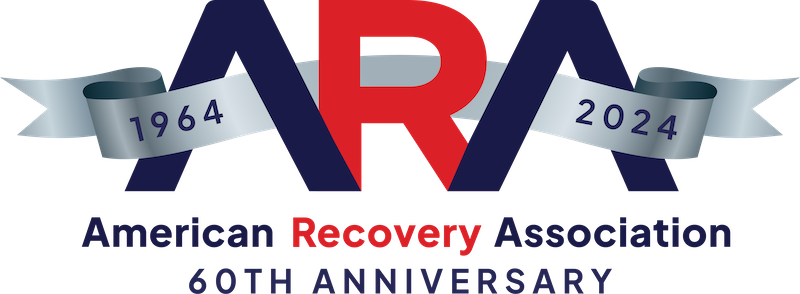 Dear Repossession Industry,
Dear Repossession Industry,
On Sunday night, President Trump signed into law the Consolidated Appropriations Act which combined the FY2021 federal spending bill with the Phase 4 COVID‐19 relief package. Our months‐long effort to convince lawmakers to oppose the inclusion of any restriction on repossessions, including a long‐term moratorium, were successful. In addition to excluding the repossession moratorium, the final bill included a number of changes to small business aid programs which struggling repossession companies should consider as a source of financial support. Please note, this week, Congress will take several steps to amend the Phase 4 bill, however, as currently discussed, none of this week’s legislative activity would impact the small business programs described in this memo. This memo summarizes the key elements of those small business aid programs that may apply to collateral recovery companies.
- $284.5 billion for a “second draw” program of PPP.
- Defines eligibility for the PPP second draw as small businesses that have no more than 300 employees and demonstrate at least a 25 percent reduction in gross revenues between comparable quarters in 2019 and 2020.
- Establishes a maximum loan size of 2.5 times the average monthly payroll costs, up to $2 million.
- Borrowers receive full loan forgiveness if they spend at least 60% of their PPP second draw loan on payroll costs over a time period of their choosing between 8 weeks and 24 weeks.
- Includes set‐asides to support first‐time PPP borrowers with 10 or fewer employees, second‐time PPP borrowers with 10 or fewer employees, first‐time PPP borrowers who have been made newly eligible, and second‐time returning PPP borrowers. Additionally, provides for a set‐aside for loans made by community lenders.
- Expands PPP allowable and forgivable expenses to include supplier costs on existing contracts and purchase orders, including the cost for perishable goods at any time, costs relating to worker protective equipment and adaptive costs, and technology operations expenditures.
- Provides needed assurances to PPP lenders that no enforcement action could be taken against a lender who originated the loan in good faith, complied with all regulations, and relied in good faith on a borrower’s certification and documentation.
- Enhances borrower flexibility by allowing borrowers to select their loan forgiveness covered period between 8 weeks and 24 weeks.
- Simplifies the forgiveness application process for smaller loans up to $150,000 while increasing SBA’s ability to audit and review forgiven loans.
- Allows PPP borrowers to include additional group insurance payments when calculating their PPP payroll costs. This would cover insurance plans such as vision, dental, disability and life insurance.
- Allows borrowers who returned all or part of their PPP loan to reapply for the maximum amount applicable. It also allows lenders to recalculate borrower’s loan amounts due to changes in regulations regardless of whether SBA Form 1502 has been submitted.
- Establishes a procedure in the bankruptcy process if the Administrator determines certain small business debtors in Chapter 11 are eligible for PPP loans.
- Eliminates the requirement that EIDL advances be subtracted from PPP forgiveness
- $3.5 billion for 7(a) program.
- Temporarily enhances the terms of the 7(a) loan program by increasing the loan guarantee to 90 percent and offering reduced or no fees for the borrower and the lender. Additionally, it would temporarily increase the 7(a) express loan limit and loan guarantee to provide access to needed working capital.
- Temporarily eliminates fees for the 504 loan program and favorable terms for refinancing loans.
- Increases the aggregate loan limit for microloan intermediaries in order to ensure intermediaries have increased capacity to make loans to underserved and underbanked borrowers.
- Extends the Small Business Debt Relief program, Section 1112 of the CARES Act, which would defer payments of principal and interest on new and existing SBA 7(a), 504, and Microloan programs for eligible entities.
- Mitigates fraud by requiring new measures for the SBA to verify eligibility for EIDL Advance grants.
- Increases transparency of SBA’s PPP forgiveness audit and review process by requiring the SBA to submit a detailed forgiveness audit plan to Congress within 30 days of enactment. Appropriates $50 million to support SBA’s PPP audit authority.
- Prohibits PPP loan proceeds to be used for lobbying activities.
- Requires the President, Vice President, the head of an Executive department, or a Member of Congress as well as their spouse to disclose this status when receiving forgiveness on a Paycheck Protection Program initial loan. Prohibits these individuals from obtaining a future PPP loan.
Section 276 of the package clarifies that gross income does not include any amount that would otherwise arise from the forgiveness of a Paycheck Protection Program (PPP) loan. This provision also clarifies that deductions are allowed for otherwise deductible expenses paid with the proceeds of a PPP loan that is forgiven, and that the tax basis and other attributes of the borrower’s assets will not be reduced as a result of the loan forgiveness. The provision is effective as of the date of enactment of the CARES Act. The provision provides similar treatment for Second Draw PPP loans, effective for tax years ending after the date of enactment of the provision
J. Patrick Altes
